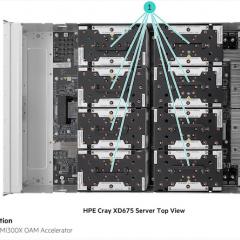 Three University of Queensland research projects were successfully granted access to the first Pawsey Centre for Extreme scale Readiness (PaCER) program, establishing Australia’s research platform for extreme scale computing.
Three University of Queensland research projects were successfully granted access to the first Pawsey Centre for Extreme scale Readiness (PaCER) program, establishing Australia’s research platform for extreme scale computing.
PaCER aims to ready the research community to make full use of the Pawsey Supercomputing Centre’s next era of supercomputing from late 2022.
The PaCER program represents an opportunity for researchers to become exascale-ready, working on new algorithm designs and optimising codes, workflows and data movement pipelines.
As principal investigators, UQ researchers Professor Debra Bernhardt (AIBN Centre for Theoretical and Computational Molecular Science), Dr Christopher Leonardi (Centre for Natural Gas) and Dr Pat Scott (School of Mathematics and Physics) were awarded PaCER grants for the following projects:
- Professor Debra Bernhardt: “Towards a molecular level understanding of flow-induced physical and chemical reactions”, in the domains of statistical mechanics and rheology
- Dr Christopher Leonardi: “Massively parallel models of particle suspensions”, in the domains of computational fluid dynamics, geoscience and petroleum
- Dr Pat Scott: “Searching for new particles from the attoscale to the exascale with GAMBIT”, in the domain of particle physics.
Dr Maciej Cytowski, Pawsey’s Head of Scientific Services and co-Chair of the PaCER Committee, describes the PaCER program as: “a long-term partnership between researchers and Pawsey’s supercomputing specialists to achieve extreme performance on next-generation supercomputers. This will unlock research at previously unavailable scales to benefit not just PaCER participants but eventually the broader research community”.
Researchers will gain early access to Pawsey supercomputing tools and infrastructure, training and exclusive hackathons focused on HPC performance at scale.
In 2022 they will be the first to exploit the scalability offered by Pawsey’s new 50 petaFLOPS supercomputer Setonix and solve ‘grand challenge’ problems currently unachievable with the current Magnus and Galaxy supercomputers.
In total, ten Australian research projects received PaCER grants, which Pawsey announced last month.
Each project will see Pawsey co-fund a doctoral or postdoctoral position and provide Pawsey expertise to work closely with the research team.
“Eight of these projects are focused on developing their own code for their research problems, and Pawsey will be working closely with them on software development and optimisation,” said Dr Cytowski.
“We aim to build exascale computationally-literate communities around the various scientific domains we are supporting, through both our collaborative project model, and by sharing experience and results with the wider research community.”
PaCER project teams will work to determine the best ways to scale their research to Setonix. “Each project has a ‘grand challenge’ – a scalable problem tackling their major scientific question that is not possible to address using current supercomputing resources.
“Both Setonix and these research teams will be ready for these ‘grand challenges’ in late 2022, demonstrating pathways to what is currently unachievable in Australian research,” said Dr Cytowski.
This article is an edited version of one published by the Pawsey Supercomputing Centre on 16 March 2021.



